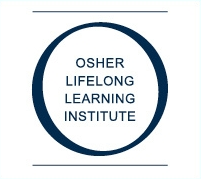[Past Event] Pacific Food Empires | Ryan Ranch
Course Description:Professor Dustin Wright examines the historical processes that have informed the food on our plates. In particular, we will look at food as a medium through which to understand the processes of migration, invention, colonialism, imperialism, and capitalism that have shaped much of the Asia-Pacific world, including Japan and the United States. |
Tuition: $30.00 Additional Fees: $0.00 |
Day/Time
Tuesdays, Apr. 2, 9 *10:00 - noon* (2 sessions)
Location
CSUMB at Ryan Ranch, 8 Upper Ragsdale Drive, Monterey
Facilitator:
Dustin Wright, Ph.D., is a historian, associate professor of Japanese Culture and Language, and chair of the Department of World Languages and Cultures at CSUMB. He is an associate director of the Okinawa Memories Initiative, director of the newly established Global Base Studies Project, and a fellow at Rikkyo University's Research Center for Cooperative Civil Studies in Tokyo. He is currently completing a book on the history of anti-base protest in Japan.

